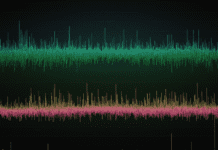Anorexia Nervosa
Anorexia nervosa is one of the highest common eating disorders and a type of mental illness.
People who have anorexia, as it is often called, become obsessed with controlling what they eat, how much food they eat, and monitoring their weight.
Those who suffer from anorexia starve themselves by eating small amounts of food and reducing the amount they eat more and more over time.
They may also be extremely concerned with body weight and body shape and focus on becoming as thin as possible due to an altered perception of health.
People with anorexia continue to limit the amount of food they eat no matter how much weight they have lost, even as health issues develop.
Some people who have anorexia nervosa recover after one episode with treatment. Others might get well but have relapses and more anorexic episodes.
There is also a chronic type of the disorder that has more negative effects on health.
Without treatment, from five to 20 percent of all people with anorexia eventually die from complications of the disease or suicide.
The people most often affected by anorexia nervosa are young women in their teens and twenties.
However, nearly anyone can become anorexic. This includes adult men and women of all ages as well as children.
WHAT CAUSES ANOREXIA NERVOSA?
There is no single cause for anorexia, but researchers believe that some people are more inclined to get it than others. One factor is family.
If you have a close relative, especially a mother or sister with anorexia, you are much more likely to develop the disorder.
Specific types of people seem more likely to develop anorexia.
They have characteristics such as being a perfectionist with low self-esteem, being a people pleaser without a strong sense of their own identity, and coming from a family characterized by conflict, inconsistency, or overprotectiveness.
Anorexia can provide the illusion of personal control if you have these qualities. Sometimes, an event that is stressful or distressing can trigger an episode of anorexia.
Such events include hearing a negative comment about your weight, moving to a new place, and the changes that come with puberty.
WHAT ARE THE SYMPTOMS OF ANOREXIA NERVOSA?
There are many common physical and behavioral signs of anorexia nervosa.
They include:
- being extremely thin
- fearing weight gain
- focusing on thinness to the point that a healthy weight cannot be maintained
- limiting eating to an extreme degree
- having a body image that does not match reality
- excessive focus on exercising
- missing a menstrual cycle
Because of the obsession with limiting food and becoming thinner, anorexics often weigh themselves over and over again.
They also often severely restrict food portions and sometimes will only eat certain foods. Some anorexics stop eating foods with fat and sugar entirely.
If you have a form of anorexia that lasts over a long period of time, other symptoms may develop.
They include:
- lack of energy
- reduced body temperature
- brittle hair and nails
- dry and yellowish skin
- low blood pressure
- severe constipation
- lanugo (the growth of thin hair all over the body)
- wasting and weak muscles
- thinning of bones
- infertility
- heart and brain damage
- organ failure
WHEN SHOULD MEDICAL CARE BE SOUGHT IF YOU SUSPECT SOMEONE HAS ANOREXIA?
Sometimes, diagnosing anorexia nervosa is difficult because there is a difference between struggling with eating enough and eating disorders.
However, there are warning signs for anorexia.
They include:
- skipping meals
- hiding what food is eaten
- hiding eating habits
- hiding obsessive thoughts about weight from others
- believing some foods are good and some are bad
- avoiding eating in public
- unexpected body image concerns
- fainting
If these types of behaviors are observed, a medical evaluation should take place.
The process of getting diagnosed and treated for anorexia does not usually begin with the person suffering from the disorder but from the concern and actions of a family member, friend, or teacher.
HOW IS ANOREXIA NERVOSA DIAGNOSED AND TREATED?
Because anorexics tend to hide or lie about their eating habits, medical professionals use a combination of exams and testing to make a diagnosis.
In addition to a physical, doctors will order lab tests, especially check for electrolyte levels and liver function, and an electrocardiogram to check for any heart issues.
A mental health check is also part of the process. During a mental health check, a medical professional will discuss appearance, attitude about food and weight, and thoughts of self-harm with the person who may be anorexic.
Anorexia can be diagnosed when some or all of the following symptoms are present:
- a bodyweight at least 15 % below normal for age and height
- a deep fear of gaining weight
- constantly thinking about the shape and weight of the body
- refusing to admit that being extremely underweight can be a health hazard
- missing at least three menstrual cycles
Overall, the goals of anorexia treatment are to help the person suffering from anorexia to return to a healthy weight.
Any related psychological and medical issues are also treated. Additionally, medical care addresses behaviors that caused limited eating to prevent them from coming back.
The treatment for anorexia nervosa can vary depending on the specific issues involved and the patient’s state of health.
Generally, the most effective treatment of anorexia includes medical care, including medication, such as antidepressants or mood stabilizers, and addressing specific health issues, and psychological care, such as individual, family, or group counseling.
Nutrition counseling and self-help strategies are also part of many treatment plans.
Inpatient care at a hospital occurs when there is a medical crisis, such as severe malnutrition and the potential for suicide.
Inpatient care is often ordered when the anorexia patient shows signs of having an altered mental state.
Some anorexia nervosa patients can participate in day treatment or partial hospitalization programs, where they experience structured eating, therapy, and medical care.
Anorexia is difficult to treat successfully, and many anorexics relapse when they leave or end treatment.
WHAT MORE I NEED TO KNOW ABOUT ANOREXIA NERVOSA?
Social media, websites, and other online content can negatively affect you when you suffer from anorexia or other eating disorders.
There are pro-anorexia and pro-bulimia websites, blogs, and images that show extreme thinness and weight loss in a positive light and offer ways to achieve such bodies.
Such sites often include bad advice on nutrition and inspirational messages that glorify unhealthful behaviors like excessive weight loss.
Called “Thinspiration,” these materials can create a sense of competition and encourage people to pursue detrimental ways of life.
If you or someone you are familiar with might be struggling with anorexia nervosa, there are many resources where you can find help.
You can find information about support groups and other resources from nonprofit organizations such as:
The National Eating Disorders Association,
National Eating Disorders Anonymous,
Association of Anorexia Nervosa.
(http://www.eatingdisordersanonymous.org) offers information about meetings both in-person and online.
The national helpline of the Substance Abuse and Mental Health Services Administration (1-800-662-HELP) can also provide information and treatment referrals.
Anorexia can be successfully treated with professional help.
Resources
Websites
“Anorexia nervosa.” Mayo Clinic. February 20, 2018. https://www.mayoclinic.org/diseases-conditions/anorexia-nervosa/symptoms-causes/syc-20353591 (accessed October 16, 2018).
“Anorexia Nervosa.” National Eating Disorders Association. https://www.nationaleatingdisorders.org/learn/by-eating-disorder/anorexia (accessed October 16, 2018).
“Anorexia nervosa.” Office of Women’s Health, womenshealth.gov. August 28, 2018. https://www.womenshealth.gov/mental-health/mental-health-conditions/eating-disorders/anorexia-nervosa (accessed October 16, 2018).
Organizations
National Association of Anorexia Nervosa and Associated Disorders, 220 N. Green St., Chicago, IL, 60607, (630) 577-1330, (630) 577-1333, hello@anad.org, http://www.anad.org.
National Eating Disorders Association, 1500 Broadway, Ste. 1101, New York, NY, 10036, (800)931-2237, (212) 575-6200, Fax: (212) 575-1650, info@NationalEatingDisorders.org, https://www.nationaleatingdisorders.org .








